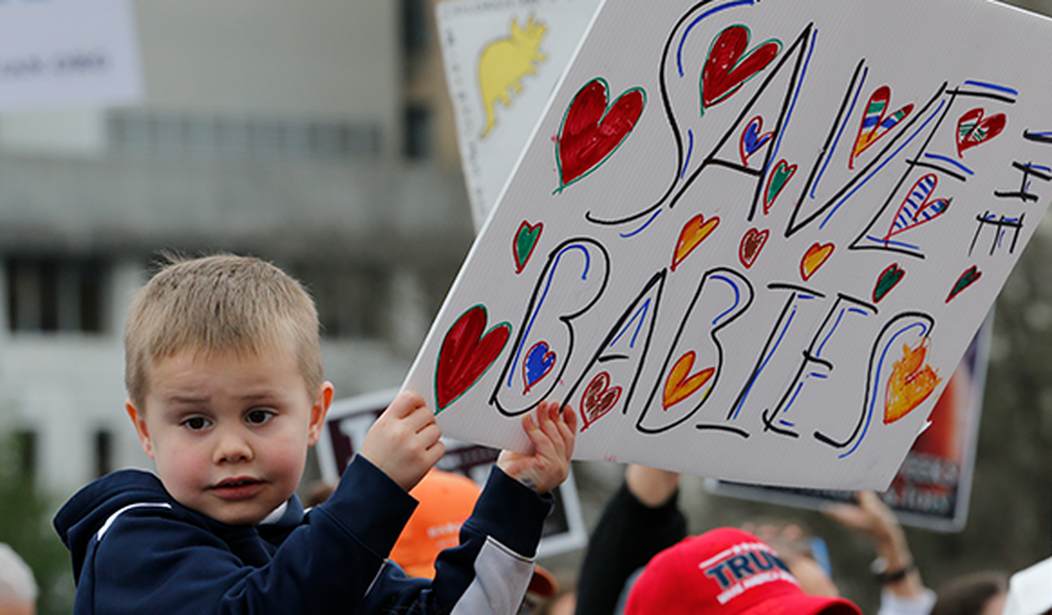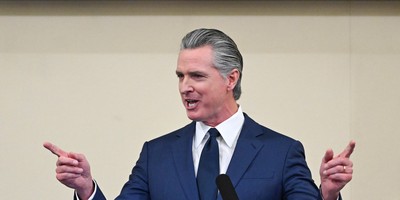When one listens carefully to policy debates these days, it is somewhat shocking how often death is introduced as a solution for human problems.
Abortion comes to mind immediately. Actor and activist Alyssa Milano released a podcast two days ago in which she revealed that she had two abortions just a few months apart back in 1993. Despite describing herself as having been breathlessly in love at the time, Milano insisted that the two back-to-back abortions were the "right choice."
She argued that she could not have had her career as an actor and an activist had she carried either of those pregnancies to term. Milano further said that her life "would be completely lacking all its great joys," and that she would not have the "beautiful, perfect, kind, loving and inquisitive children" she now shares with her husband, David Bugliari.
This is a vapid argument. It is impossible to know how different decisions earlier might affect options later in life. (Perhaps Milano would have met her current husband and married him notwithstanding.) Furthermore, it's sad (as Feminists For Life states frequently) Milano accepts the party line that she could not have combined motherhood and her career. But her suggestion that the children she conceived in 1993 would have brought her any less joy than the children she has now is breathtaking in its dismissal of the beauty, perfection, kindness, love and inquisitiveness -- the humanity -- of those children.
As with the beginning of life, so, too, with the end of it. Euthanasia and assisted suicide were initially pitched as compassionate alternatives for those suffering from terminal illness but have now expanded to include chronic (but distinctly nonfatal) conditions, depression, anxiety and even just an unwillingness to live any longer.
The embrace of death as solution is not a phenomenon that admits easily of "left versus right" political -- or even cultural -- divisions. Americans on the right often defend the death penalty just as vehemently as the left cheerleads for abortion. (Euthanasia and assisted suicide seem to have advocates and opponents in every conceivable political camp.) And although there is a world of difference between an innocent human child and someone convicted of a capital crime like murder or terrorism, it is a fact that innocent people are convicted with alarming frequency, and that our legal system has bias and even outright incompetence. Even if you manage to steer clear of those two dangers, a decent defense is outrageously expensive. Furthermore, appeals in death penalty cases can last more than 10 years. Taxpayers often fund these criminal litigation expenses.
Recommended
How easily we accept the conclusion that death is the answer to our most serious problems. Unwanted baby? Kill it. Have an incurable disease? Kill yourself. Commit a heinous crime? The government should kill you. These precedents -- and the assumptions about human life that underlie them -- should frighten us. Instead, we find ourselves pushed into accepting them as normal -- even as positive.
The motivations behind these positions are understandable but deeply flawed.
An unplanned pregnancy can be terrifying. But the unborn child has inherent value as a human being, even if his or her parents are young or poor or didn't plan the pregnancy or are trying to establish their careers.
Similarly, most of us can sympathize with someone facing death or a debilitating illness. The prospect of dying is terrifying enough; the prospect of dying in or living with horrific pain, or losing one's autonomy and/or identity, can seem overwhelming and an unacceptable loss of dignity. But the solution is adequate pain management (our irrational fear of properly treating pain with opioids is another topic altogether), other proper palliative care for the dying and holistic treatment that affirms the dignity of those living with debilitating conditions -- not signing on to a worldview that proclaims these lives to be unworthy of life.
Opposition to the death penalty may seem like the hardest case to make. 2019 was the 50th anniversary of the grisly and unimaginably violent murders of eight people by members of Charles Manson's bizarre cult. It is hard to imagine criminals more deserving of death than those who stabbed to death actress Sharon Tate (also killing her unborn full-term baby), four houseguests and two completely unrelated individuals, Leno and Rosemary LaBianca, over two August nights in 1969.
But wanting those who killed others to be executed themselves is vengeance, not justice. It denies the humanity of the criminals. While that visceral impulse is understandable in many cases, calling for the deaths of the most despised criminals can easily morph into the mindset that justifies lynching. (America's long and bloody history of lynching is proof.) As noted above, decades can pass between the commission of the offenses and their perpetrators' executions. Some criminals are rehabilitated. (Diane Sawyer's interviews with convicted murderer Manson and his former followers Patricia Krenwinkle and Leslie Van Houten in the 1980s revealed that Krenwinkle and Van Houten seem legitimately penitent, and that Manson sounded just as insane as he did during the trial that led to his conviction.)
And then there is the specter of innocence. Dead men tell no tales -- and they don't get released from their sentences when evidence later exonerates them.
The embrace of death as a solution to human problems will not actually solve those problems. It will only produce more death.

























Join the conversation as a VIP Member